Roland Oruche
Exploring the Performance of Large Language Models on Subjective Span Identification Tasks
Jan 02, 2026Abstract:Identifying relevant text spans is important for several downstream tasks in NLP, as it contributes to model explainability. While most span identification approaches rely on relatively smaller pre-trained language models like BERT, a few recent approaches have leveraged the latest generation of Large Language Models (LLMs) for the task. Current work has focused on explicit span identification like Named Entity Recognition (NER), while more subjective span identification with LLMs in tasks like Aspect-based Sentiment Analysis (ABSA) has been underexplored. In this paper, we fill this important gap by presenting an evaluation of the performance of various LLMs on text span identification in three popular tasks, namely sentiment analysis, offensive language identification, and claim verification. We explore several LLM strategies like instruction tuning, in-context learning, and chain of thought. Our results indicate underlying relationships within text aid LLMs in identifying precise text spans.
Claim Verification in the Age of Large Language Models: A Survey
Aug 26, 2024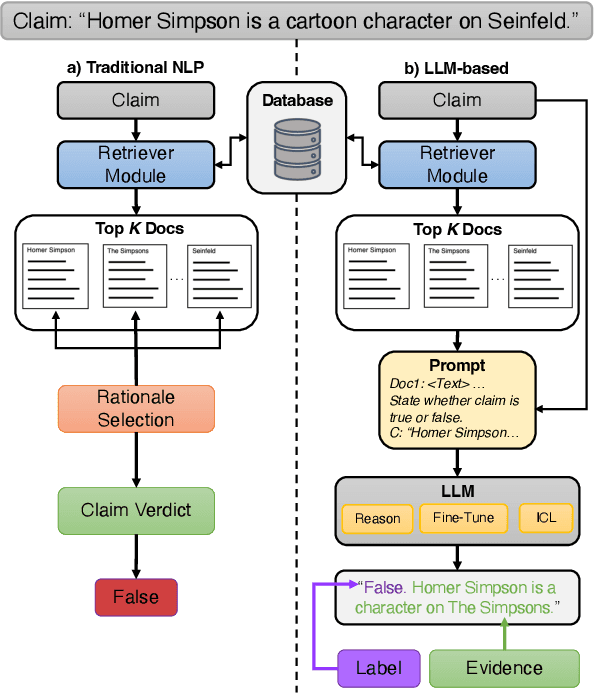
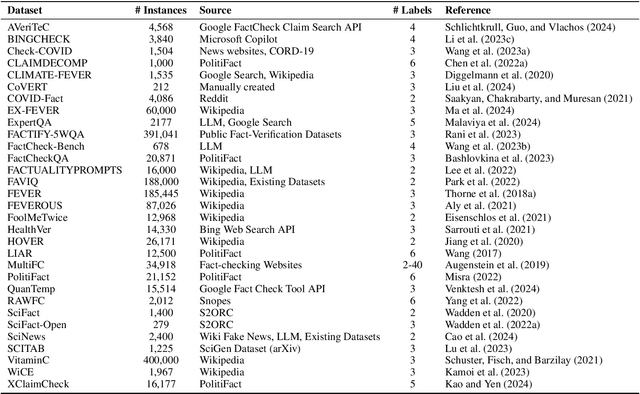
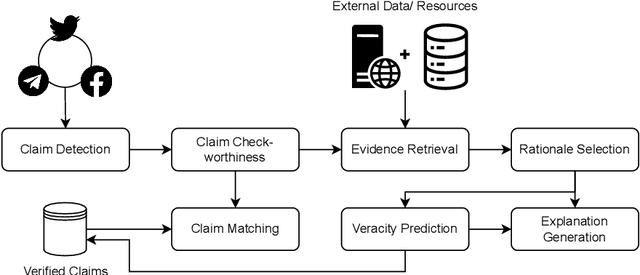

Abstract:The large and ever-increasing amount of data available on the Internet coupled with the laborious task of manual claim and fact verification has sparked the interest in the development of automated claim verification systems. Several deep learning and transformer-based models have been proposed for this task over the years. With the introduction of Large Language Models (LLMs) and their superior performance in several NLP tasks, we have seen a surge of LLM-based approaches to claim verification along with the use of novel methods such as Retrieval Augmented Generation (RAG). In this survey, we present a comprehensive account of recent claim verification frameworks using LLMs. We describe the different components of the claim verification pipeline used in these frameworks in detail including common approaches to retrieval, prompting, and fine-tuning. Finally, we describe publicly available English datasets created for this task.
Attention-based Domain Adaptation Forecasting of Streamflow in Data Sparse Regions
Feb 13, 2023


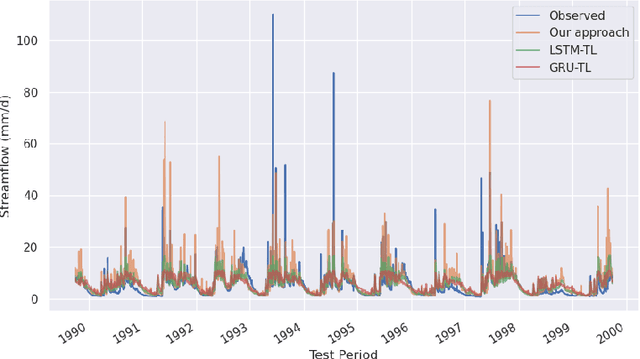
Abstract:Streamflow forecasts are critical to guide water resource management, mitigate drought and flood effects, and develop climate-smart infrastructure and industries. Many global regions, however, have limited streamflow observations to guide evidence-based management strategies. In this paper, we propose an attention-based domain adaptation streamflow forecaster for data-sparse regions. Our approach leverages the hydrological characteristics of a data-rich source domain to induce effective 24h lead-time streamflow prediction in a limited target domain. Specifically, we employ a deep-learning framework leveraging domain adaptation techniques to simultaneously train streamflow predictions and discern between both domains using an adversarial method. Experiments against baseline cross-domain forecasting models show improved performance for 24h lead-time streamflow forecasting.
Transfer learning to improve streamflow forecasts in data sparse regions
Dec 06, 2021

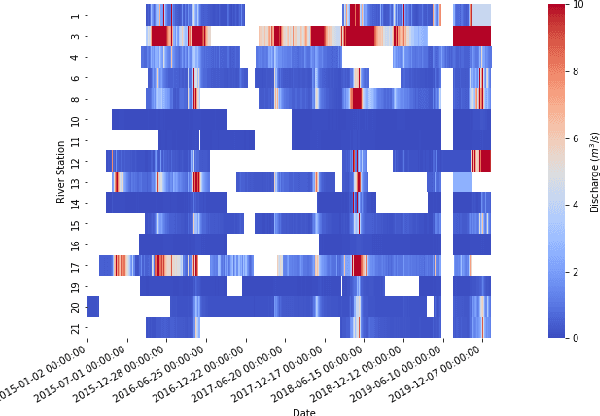
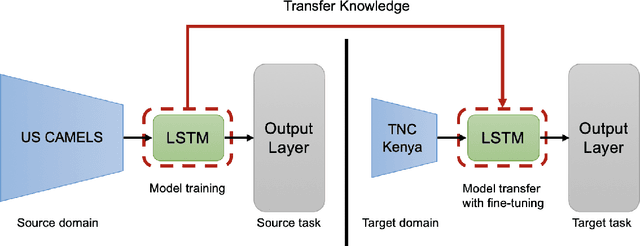
Abstract:Effective water resource management requires information on water availability, both in terms of quality and quantity, spatially and temporally. In this paper, we study the methodology behind Transfer Learning (TL) through fine-tuning and parameter transferring for better generalization performance of streamflow prediction in data-sparse regions. We propose a standard recurrent neural network in the form of Long Short-Term Memory (LSTM) to fit on a sufficiently large source domain dataset and repurpose the learned weights to a significantly smaller, yet similar target domain datasets. We present a methodology to implement transfer learning approaches for spatiotemporal applications by separating the spatial and temporal components of the model and training the model to generalize based on categorical datasets representing spatial variability. The framework is developed on a rich benchmark dataset from the US and evaluated on a smaller dataset collected by The Nature Conservancy in Kenya. The LSTM model exhibits generalization performance through our TL technique. Results from this current experiment demonstrate the effective predictive skill of forecasting streamflow responses when knowledge transferring and static descriptors are used to improve hydrologic model generalization in data-sparse regions.
 Add to Chrome
Add to Chrome Add to Firefox
Add to Firefox Add to Edge
Add to Edge